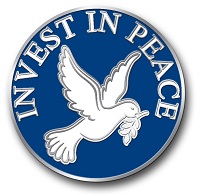The assault on humanity by the jihadist group Islamic State (also known as ISIS) is dominating the headlines and the attention of world leaders. The gruesome crimes committed (and proudly flaunted on the internet) by ISIS include mass executions, beheadings, ethnic cleansing and genocide. The entire world has been shocked and appalled by these barbaric acts.
The top priority of the international community must be to protect the innocent. The use of military force is certainly a last resort, but we have seen circumstances in recent weeks and months in which military intervention has been necessary and has saved the lives of innocents. Our leaders, and President Obama in particular, have been forced to make painful and difficult decisions and will be forced to make more in coming weeks and months. They need our prayers and support.
Secondly, all of the faith communities must work together to combat and eliminate religious extremism. Contrary to what some are saying, there is an increasingly clear and vocal rejection of ISIS and other jihadist groups underway in the Islamic world. The people of Egypt, a country of over 80 million, 90% of whom are practicing Muslims, overthrew and rejected the Muslim Brotherhood, the organization whose ideology (“jihad is our way, martyrdom is our greatest desire”) acts as the foundation of the global jihadist movement. Islamic religious leaders around the world have issued clear and unambiguous statements condemning ISIS and other jihadist groups around the world. Numerous American Muslim organizations have issued similar statements and press releases condemning extremism in the name of their faith and rejecting violence. We as Christians must partner with and support the many millions of moderate and peaceful Muslims to rid the world of ISIS and their ideology of hatred and violence.
The way forward in Gaza
With an indefinite ceasefire to the Hamas-Israel war in place, the focus must now be on establishing a lasting peace. Such a peace is dependent on the people of Gaza gaining access to international support for reconstruction, along with dignity, genuine self-determination and freedom.
The international community is right in pressing the jihadist group Hamas to relinquish control of Gaza to the Palestinian Authority (the Palestinian-Israeli peace group OneVoice is using the slogan “Abbas, not Hamas”), but more must be done. Palestinians deserve fundamental civil rights of free speech, peaceful assembly, and the ability to freely choose their leaders. This is impossible in Gaza, where Hamas leaders have publicly threatened to kill anyone who stands against them. In the West Bank, the terms of PA president Abbas and other Palestinian Authority officials ran out several years ago and nothing has happened since. This is unjust.
Many in the international community are reluctant to advocate for such basic rights for Palestinians, remembering that candidates from Hamas won a majority of legislative seats in the last national Palestinian elections in 2006, and fearing a similar outcome if new Palestinian elections are held.
There is certainly risk that this could occur. Indeed, recent polls of the Palestinian public show a significant increase in public support for Hamas. At the same time, the status quo of political instability severely weakens the Palestinian negotiating position and represents an insurmountable obstacle to the two-state solution. Israeli security will not exit from most of the West Bank without confidence that the West Bank will not become a base for missile attacks at Israel, as happened after the Gaza withdrawal in 2005. Without a freely elected Palestinian government committed to peace providing this confidence, it is difficult if not impossible to envision the people of Israel taking such a risk.
In addition, Israel’s government must not yield to the more extreme voices in its society and government who increasingly are calling for their own one state solution. These extremists have made the peacemaking process increasingly difficult because of their continued advocacy for new settlement construction in the West Bank.
Peace is possible between the Palestinians and Israelis. However, to create peace, reasonable voices in both societies must be empowered. Rather than fueling anger on both sides with actions such as boycotts, divestment and sanctions, the church’s role is to strengthen the voices of the majority of people in Israel and Palestine.
PFMEP Blog launched
We are pleased to announce the launch of the PFMEP Blog. Visit the PFMEP website and hit “Blog” on the main menu to access the PFMEP Blog home page. Constructive comments and dialogue are welcome.
Our first blog post is focused on a grassroots peacemaking project that Presbyterians are pursuing and is authored by Mike Gizzi. Mike is a ruling elder in the Presbytery of Great Rivers and was a commissioner to the 221st Presbyterian General Assembly in Detroit this past summer. Mike authored the commissioner’s resolution calling upon the PC(USA) to distance itself from the troubling publication “Zionism Unsettled.” The resolution was subsequently approved by the Assembly and “Zionism Unsettled” is no longer being distributed by the PC(USA).





